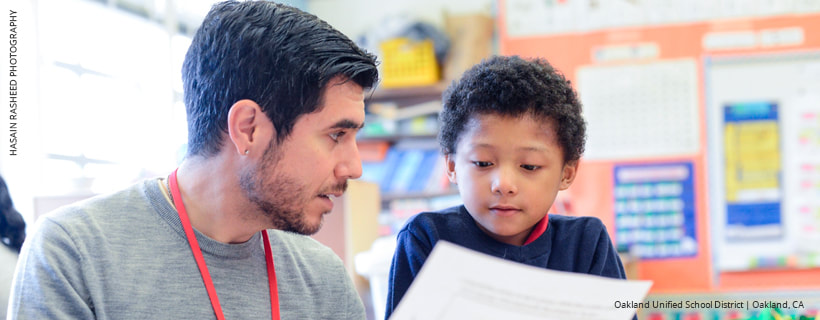 With the start of 2022, we recognize how deeply challenging it is for our partners as they face COVID-related illness and staff shortages. Not only our partners, but so many in the PK-12 education ecosystem are facing difficult times, especially educators, families, and children. It’s a time when we all need support. As a way to help, we’ve put together simple FASTalk messages that anyone can share with families. They focus on what we all need right now: tips for navigating these times through connection, understanding, and empathy. The messages can be accessed here and easily used and shared with families. You can copy and paste them into a text or email, or use them in conversation. Thank you for the work you do to educate our students and take good care. Mask protests and violent demonstrations against teaching critical race theory have dominated our news feeds, giving a false sense that these are the issues that are top of mind for families as we enter another school year in the grips of a pandemic. The loudest voices are not necessarily the most representative voices, as we found in our synthesis of over 60 articles, surveys, and research reports on parents’ and caregivers’ thoughts, behavior, priorities, and concerns related to schooling during the pandemic. What we uncovered serves as an important reminder of why we do the work we do at Family Engagement Lab. Families are an amazing power in every child’s education and we must continue to offer accessible and equitable ways to foster meaningful school-home partnership in support of student learning.
This month, we will begin to share a series of articles on our blog about these important findings with examples of how Family Engagement Lab takes action to address them and with suggestions on how you can too. These learnings deepen our understanding of the needs and experiences of families today, providing critical insights that support our ability to equitably advance learning outcomes for all students through family engagement solutions. We hope you will join us in these efforts to support all families as children return to another school year that is like none other. Finding 1: Parents are concerned about the effects of interrupted learning, with lower-income families expressing more concern than higher-income families. Families are a powerful asset with the potential to accelerate learning at home, but they need critical information from schools to do so effectively. In addition to regularly measuring the development of key skills, it is essential that schools and teachers share information with families about how their children are doing, and how they can help at home in a way that is accessible and actionable. Families are eager for specific information on their child’s strengths and weaknesses and what they can do to support their child’s success. Reflect on your district’s or school’s plans for sharing key information with families to help their children succeed this school year:
You can learn more about how Family Engagement Lab fosters equity in this blog post. Learn More As K-12 students return, schools shouldn't obsess over pandemic 'learning loss' (Berkeley News, August 11, 2021) COVID-19, the educational equity crisis, and the opportunity ahead (Brookings Center Chalkboard, April 29, 2021) Footnotes 1. Horowitz, J. M., (2020, April 15). Lower-income parents most concerned about their children falling behind amid COVID-19 school closures. Pew Research Center. Parent-Teacher Relationships Impact Student Learning Children thrive when their parents and teachers partner to support their learning and development. A good working relationship between parents and teachers forms the foundation so both can collaborate to respond to each child’s unique needs. The Research Behind the Importance of Parent-Teacher RelationshipsThe powerful link between parent-teacher relationships and student learning has been demonstrated in multiple studies. In Organizing Schools for Improvement: Lessons from Chicago, the Consortium on Chicago School Research found that schools with strong connections with parents were 10 times more likely to improve in math and four times more likely to improve in reading than schools weak on this measure. Furthermore, in schools where connections with parents were weak, it undermined virtually all attempts at improving student learning.
Strong relationships can be empowering for both parents and teachers. A few years ago, I met an elementary school parent who explained, “Teachers have to see parents ask them things, so that teachers have the confidence to tell us what is happening at school.” Building and sustaining parent-teacher relationships is an ongoing process that needs to start early with banking positive interactions. Research from psychology researcher John Gottman shows that stable relationships need five times as many positive interactions as negative. Positive interactions spill over to help improve student engagement and learning outcomes as well (Christenson & Reschly, 2009). Schools and teachers can create the conditions for these positive interactions with parents by proactively inviting families as partners and recognizing the important role of families. As the parent I met explained, “For me, it's really important that the teachers support us by communicating what kids are doing in school, what they are low at so that we can help support them too.” When teachers open the doors and invite regular communication, it can set parent-teacher relationships on the right course.  I’m writing with an urgent and important message to Family Engagement Lab’s partners regarding the rise in hate crimes targeting Asian-Americans. The murders of eight people in Atlanta, including six Asian women, punctuates the sharp increase in violent attacks across the country. Asian-Americans across the country are living with a daily fear for our loved ones and for ourselves. Asian-American families are OUR families, Asian-American children are OUR students, and Asian-American educators are OUR teachers. One out of 10 FASTalk students identify as Asian, and Chinese is the third most commonly spoken language by our parents, after English and Spanish. Anti-Asian racism is affecting all of us profoundly. Many of you have spoken with me about wanting to build stronger and supportive relationships with Asian-American families in your communities. I’m grateful for that because complicity is not an option. A recent youth-led study revealed a quarter of Asian-American young adults have been the targets of racism in the past year. In nearly half of cases an adult was present, but only seldom intervened. Whether there are five Asian-American families in your community or 50,000, there is no more important time than the present to act when the safety and sense of belonging of anyone in our communities is threatened. As we approach Asian-American Pacific Islander Heritage Month in May, it is an opportune time to take action in support of our Asian-American community members. Below is a list of resources for your schools and educators to build strength in your school communities to foster safety and belonging for Asian-American students, families, and colleagues during these challenging times. Please join us in building safe, supportive, and inclusive communities for Asian-Americans. Sincerely, Vidya Sundaram Co-founder and CEO The Research on Supporting EL StudentsWhile ELs are the most rapidly growing student subgroup, representing nearly 10% of public school students and speaking more than 400 different languages and dialects, over 30 states do not require EL training for general classroom teachers beyond what is required federally. Indeed, the research on teacher preparedness and self-efficacy for teaching ELs paints a bleak picture. Despite a strong likelihood of having an EL student in their classroom, teachers are often without the necessary training and support to meet the needs of a heterogeneous EL student population with unique educational needs related to developing both English language skills and building subject area knowledge. Accordingly, national data reveal many ELs have unmet academic potential, as evidenced by academic assessment results comparing the achievement of ELs to their non-EL peers. How Teachers and Families Can Partner to Support EL Students’ Success |
Categories
All
Archives
July 2024
|
|
DONATE
PayPal |
548 Market Street #42210 San Francisco, CA 94104
© 2023, Family Engagement Lab | Privacy Policy | Terms of Use
© 2023, Family Engagement Lab | Privacy Policy | Terms of Use

